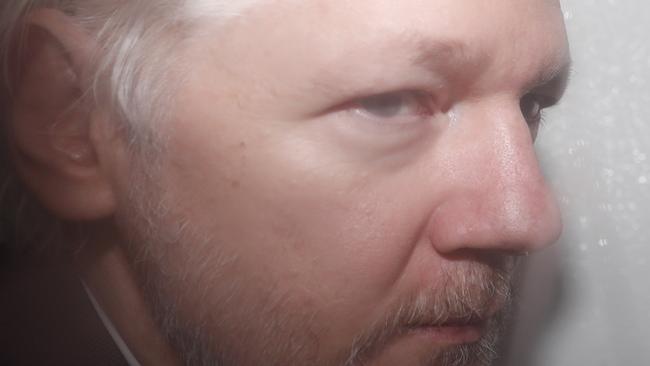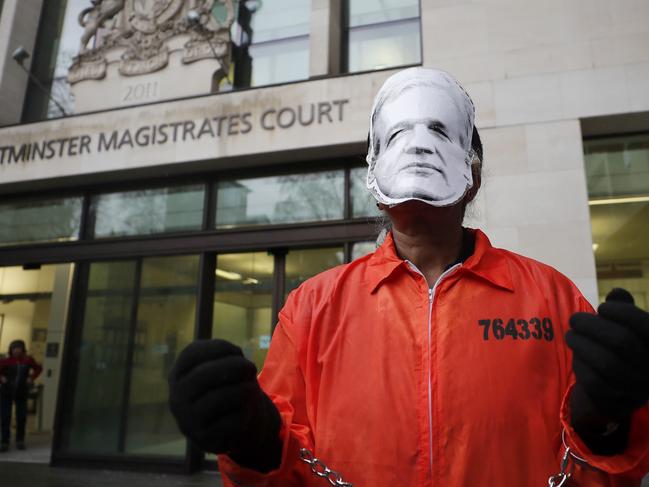Julian Assange appears in court over Spanish surveillance claims
WikiLeaks founder Julian Assange has appeared in a Spanish court via videolink over claims he was spied on while living in the Ecuadorean Embassy in London.

News
Don't miss out on the headlines from News. Followed categories will be added to My News.
WikiLeaks founder Julian Assange has been questioned by a Spanish judge over allegations a security firm spied on him for the Americans while he lived at the Ecuadorean Embassy in London.
Spanish judge Jose de la Mata took a statement on Friday via videolink from the Australian, who appeared at Westminster Magistrates Court.
The hearing on Friday was held in a closed court but a small crowd of Assange’s supporters gathered outside the court building in central London with banners and signs demanding his release.

Journalists were also denied entry to the courtroom.
The hearing is unconnected to the US extradition case, where he faces 18 charges including conspiracy to commit computer intrusion.
The Spanish case was triggered when footage from embassy CCTV cameras and documents, including private legal papers and a medical record, were said to have been offered to Spanish police during an undercover operation.
Spanish security firm UC Global has been accused over the hack and its owner David Morales was arrested in September.
The company allegedly worked for US intelligence and spied on Assange and the visitors he received at the diplomatic headquarters, including former American politician Dana Rohrabacher.

UC Global took over security at the London embassy between 2015 and 2018.
Morales allegedly bought an expensive house and cars during the period.
The company is alleged to have placed a microphone in a fire extinguisher in a room in the embassy where Assange held confidential meetings with his visitors, including his lawyers, doctors and diplomatic agents.
Morales is accused of taking Assange’s fingerprints from a glass and photographing visitors to the embassy.
The judge said the activities could amount to crimes against privacy, the privilege of lawyer-client communications and money laundering.
Assange rose to international attention in 2010 after WikiLeaks published leaked military information provided by former US Army intelligence analyst Chelsea Manning, which prompted the US government to launch a criminal investigation into the publisher.
In November that year, Sweden requested his extradition over allegations of sexual assault and rape, which he denied.

MORE NEWS
PM returns to Oz to deal with bushfire crisis
Prince Andrew won’t celebrate New Year with his family
Harry and Meghan will spend Christmas in Canada
Assange surrendered himself to UK police around a month later and was held in custody for 10 days before being released on bail.
When he was unable to challenge the extradition proceedings, he breached his bail over concerns he would be extradited from Sweden to the US because of his role in the Manning leaks.
He fled to the Ecuadorean embassy and in August 2012, he was granted asylum by Ecuador.
He was forcibly removed from the embassy by British police after Ecuador’s new president Lenin Moreno revoked his asylum.
Sweden has since withdrawn its extradition request but a UK arrest warrant for breaching his bail conditions saw Assange sentenced to 50 weeks.
He is being held in Belmarsh Prison.
Originally published as Julian Assange appears in court over Spanish surveillance claims


